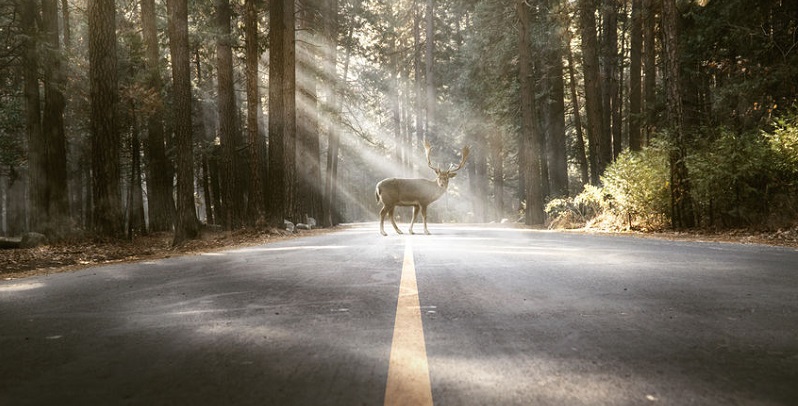The average insurance claims for Colorado auto accidents involving deer rose from $3,994 in 2016 to $4,179 in 2017.
CDOT Unit Seeking New Solutions to Growing Problem
Do you have a big idea that can save wildlife on the state’s roads and highways? If it’s good enough, the Colorado Department of Transportation (CDOT) wants to pay you for it.
CDOT’s RoadX program has launched a contest to gather and develop ideas for preventing or reducing the risk of Colorado car accidents involving deer and other wildlife. The RoadX Safety Challenge is tasking would-be entrants to think of a technology-based idea that the state can use to reduce traffic accidents involving wildlife and minimize harm to the animals and motorists, according to Colorado Sun contributor Tamara Chuang.
The agency is offering $15,000 in prizes and additional funding to develop the best ideas into working technology. Country roads and highways carry less than half of the state’s traffic but for obvious reasons, account for the vast majority of fatal accidents involving wildlife.
Vehicle crashes with animals cause at least $1 billion of damage annually across the United States, according to an estimate by the Insurance Institute for Highway Safety. Besides the animal carnage and dented grills and fenders, the crashes are sometimes fatal for the motorists involved. Chuang cited analysis by State Farm Insurance that stated car and truck accidents with deer cost an average $4,179 per claim in 2017, up from $3,994 in 2016. Coloradans are at a “medium risk” of striking a deer on the road, the insurer estimates, meaning that the state’s drivers each have a 1 in 253 chance of having such an accident.
Leveraging Tech for Economical Solutions
RoadX is angling for technological applications that can make the state’s limited roads budget do more for less, CDOT spokeswoman Amy Ford said. One low-tech approach — building tunnels and overpasses for wildlife under highways — is a proven but costly solution. The state spent $40 million on wildlife underpass and overpass systems on Colorado Highway 9 that cost $1 million – $2 million each.
Colorado needs effective solutions. One stretch of highway alone, Interstate 25 South from Castle Rock to Monument, has about 50 wildlife hits each year, Ford said, adding:
“Even self-driving cars are going to hit a deer. […] As we move into this world of connected cars and vehicles, how do we consider the technology and harness it with interactions with wildlife? Think about it, if all the elk and deer are collared, can you use the collars to connect with the (wireless communication) systems?”
Contest Began With Human Beings in Mind
RoadX held an earlier contest that awarded about $275,000 in cash prizes for ideas to reduce serious and fatal Colorado auto accidents involving pedestrians and bicyclists. But the state agency has taken a leaner approach this year. It paid five winners $10,000 each for their ideas, while another three top-prize winners received $75,000 each and were expected to develop their ideas into working tech within eight months.
Those winning ideas were Liberty Bell, an electronic gadget intended to collect data about hazards; a LED-lit bicycle path called Big Foot; and ColoRoadie, a system of special solar panels meant to light up the pavement. The three projects were stalled because of contract issues but are now progressing, the agency said. One of the three ideas will move forward to the next phase and receive $150,000 for development.
In the new competition, the developers must reach staged development goals to receive additional awards in $5,000 increments. More information will be released at the program’s website.

